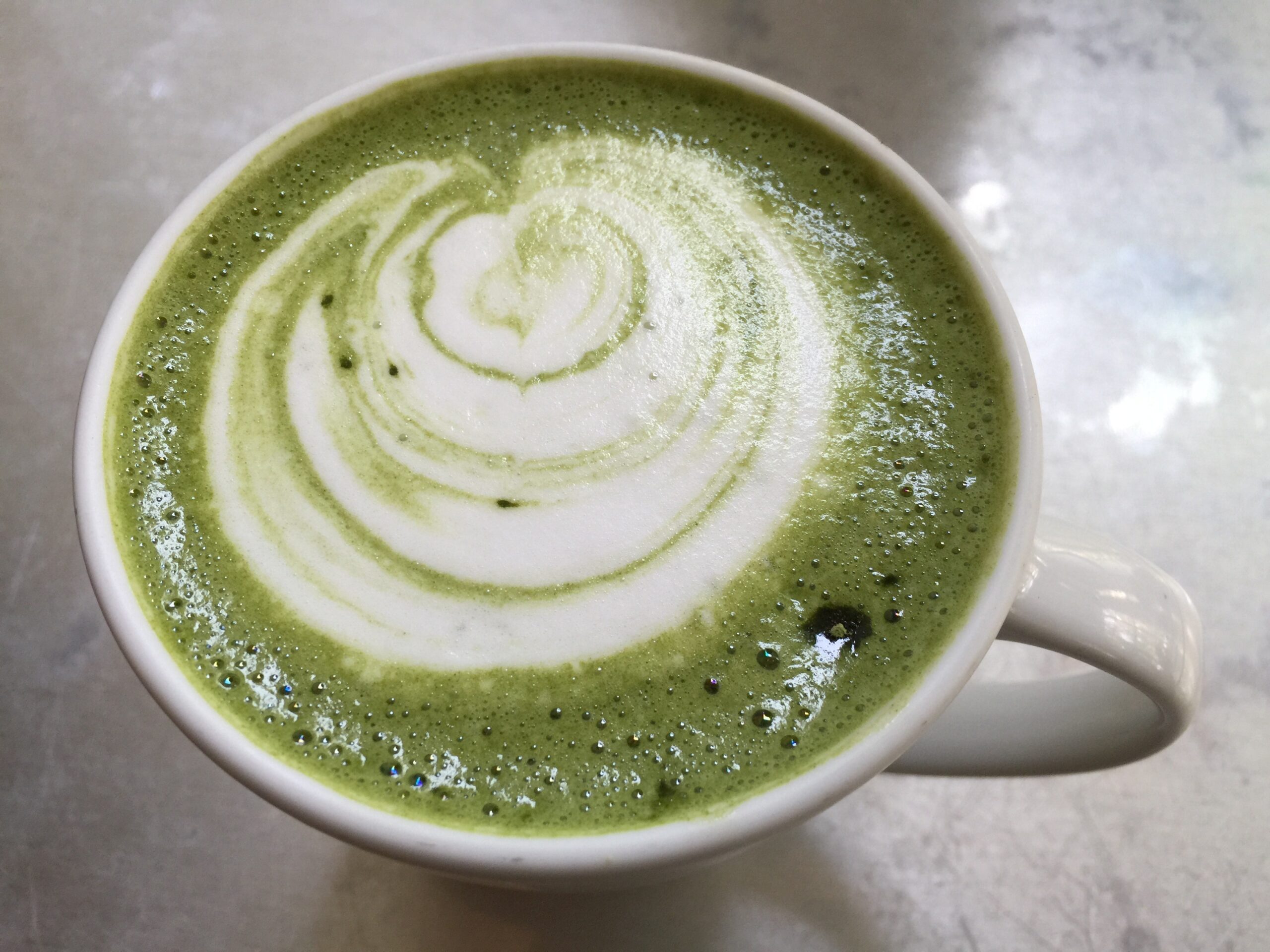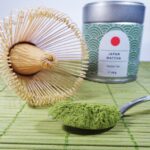Does Matcha Have as Much Caffeine as Coffee? Here’s What To Know About Matcha
Does Matcha have caffeine? The answer is yes. And if you get the jitters from coffee, then Matcha green tea might be the right way to get going in the morning. Not only does it have as much caffeine as coffee (and sometimes more), but it has tons of health benefits you just can’t get from coffee beans.
But, you have to get Matcha from Japan that has been grown and cultivated in the traditional way, or don’t even waste your time.
Matcha green tea has received a lot praise as an alternative to coffee. It has more caffeine than coffee or other types of green teas, plus it is full of antioxidants and has added health benefits. But in order to get all the benefits of Matcha green tea, you need to make sure it is from Japan, the right type that is cultivated under the right conditions, and is brewed properly.
It isn’t uncommon for people who have trouble getting started in the mornings and cannot drink much coffee. But for years nutrition scientists have debated whether coffee is an effective way to boost your energy levels or if it’s an effective way. Enter Matcha, a green tea powder that is grown as a healthy beverage and gentle caffeine boost.
This article answers the questions, ‘does Matcha have caffeine?’ and compares it to coffee. We’ll also explain the best the best places to find good quality Matcha tea leaves that will give you the most health benefits, and how to brew them for good health.
Does Matcha Have Caffeine?
Yes. When sourced, cultivated, and brewed properly, Matcha has more caffeine than regular green tea and sometimes more than coffee, depending on the beans.
A cup of Matcha is one serving. And it’s made with 2–4 grams (1/2–1 teaspoon) of Matcha powder which could have a caffeine content between 38–176 mg of caffeine.
Matcha Caffeine vs Coffee Caffeine Content
Matcha and coffee both contain caffeine. But with Matcha and coffee, not all caffeine is related equal!
A cup of Matcha has 38-176 mg of caffeine per cup, but only when it’s properly cultivated and brewed.
An 8-ounce (240 mL) cup of coffee has about 100 mg of caffeine. Arabica beans have less caffeine than Robusta beans and, like Matcha, the amount of caffeine in a cup of coffee depends greatly on how it’s brewed and where it comes from.

What is Matcha?
Matcha is a Japanese green tea produced by the Camellia sinensis plant. These plants produce a large variety of teas, including green tea and black tea. The best place to grown the Camellia sinensis plant for Matcha tea is in Japan. Historically, only the highest quality Matcha is served in the Japanese tea ceremonies.
Matcha tea differs from green tea because instead of simply brewing the leaves with hot water, Matcha tea leaves are made into a green tea powder before brewing. Matcha tea leaves are delicate and must be cultivated in covered conditions and protected from sunlight.
When cultivated properly, Matcha increases chlorophyll and alpha phosphoryl-rich leaf content to produce a rich green color. When the green-colored drink is made using the young leaves of Camellia sinensis, it is grinded together and whisked with hot water.
Matcha Powder – Ingredients and Nutrition
A cup of Matcha tea is incredibly rich in polyphenols and antioxidant amino acids L-theanine. It is low in calories, has zero carbohydrates, and 1g of fiber. It also has high amounts of iron and vitamin E, though in small amounts per serving.
Matcha Flavor
If you’ve never tasted Matcha, it’s a bit different than green tea or coffee. It has a rich, full-bodied texture with hints of greenery. It has an astringent quality with slight bitterness, but its texture tends to be silky smooth with micro-foam at its bottom, when whisked well. Matcha can be flavored with vanilla, blueberry, lemon, or other flavors. A Matcha latte has steamed milk added which adds to the rich flavor.
Matcha Doesn’t Give You Coffee Breath
Matcha actually fights bacteria causing tooth decay and breath and is an important addition to everyday oral cleanliness.
Absorption of Matcha Green Teas
When drinking Matcha the body absorbs the caffeine to help prevent side effects that you may have when drinking. Matcha contains caffeine which bonds with smaller catechins, which are antioxidants. This, plus the 1 gram of fiber, allows the caffeine in blood to be gradually released instead of quickly released, like with coffee.
This slow process gives Matcha a steady level of energy for at least 6 hours. Coffee is not a slow release. Coffee causes an increase in adrenalin levels, glucose levels, and causes insulin to spike. All of this causes mood and blood sugar to crash when glucose drops. Which is what people mean when they talk about the “crash” they feel from coffee.
How To Cultivate Matcha Tea Leaves
Proper cultivation of Matcha is important to make sure they are packed with the health benefits you’re drinking it for, like antioxidants, amino acid, polyphenols, and vitamins including quercetin and l-theanine. These health benefits can help reduce the risk of cancer because of the antioxidant benefits that scavenge free radicals before they can damage cells.
Matcha powder needs to be grown, cultivated, and processed properly to maintain these benefits.
The best Matcha is cultivated in Japan. This is because for 80 decades, Japan has been growing and cultivated this type of green tea for Japanese Tea Ceremonies. They take Matcha very seriously and have been honing the craft for ages.
Other Asian countries have tried to produce Matcha. In many cases, the non-Japanese producers are not starting with properly shade-grown Gyokuro as their source material, which is essential for true Matcha. Also, some of these suppliers are adulterating their products with coloring agents and other additives.
Matcha tea leaves need to be heavily shaded during growth and during harvest. And once harvested, need to be properly processed to maintain the integrity of Matcha.
The only good Matcha comes from Japan.
Check out this supplier to get some great Japanese Matcha.
Final Thoughts
Matcha green tea can be incredibly effective in restoring the body and has health benefits. It can even help you lose weight! It contains more caffeine than coffee when cultivated, processed and brewed properly. Our bodies process the caffeine in Matcha much slower than with coffee, which helps avoid the ‘crash’ from coffee many people experience. Make sure to buy Matcha directly from Japan to get the most benefits.

